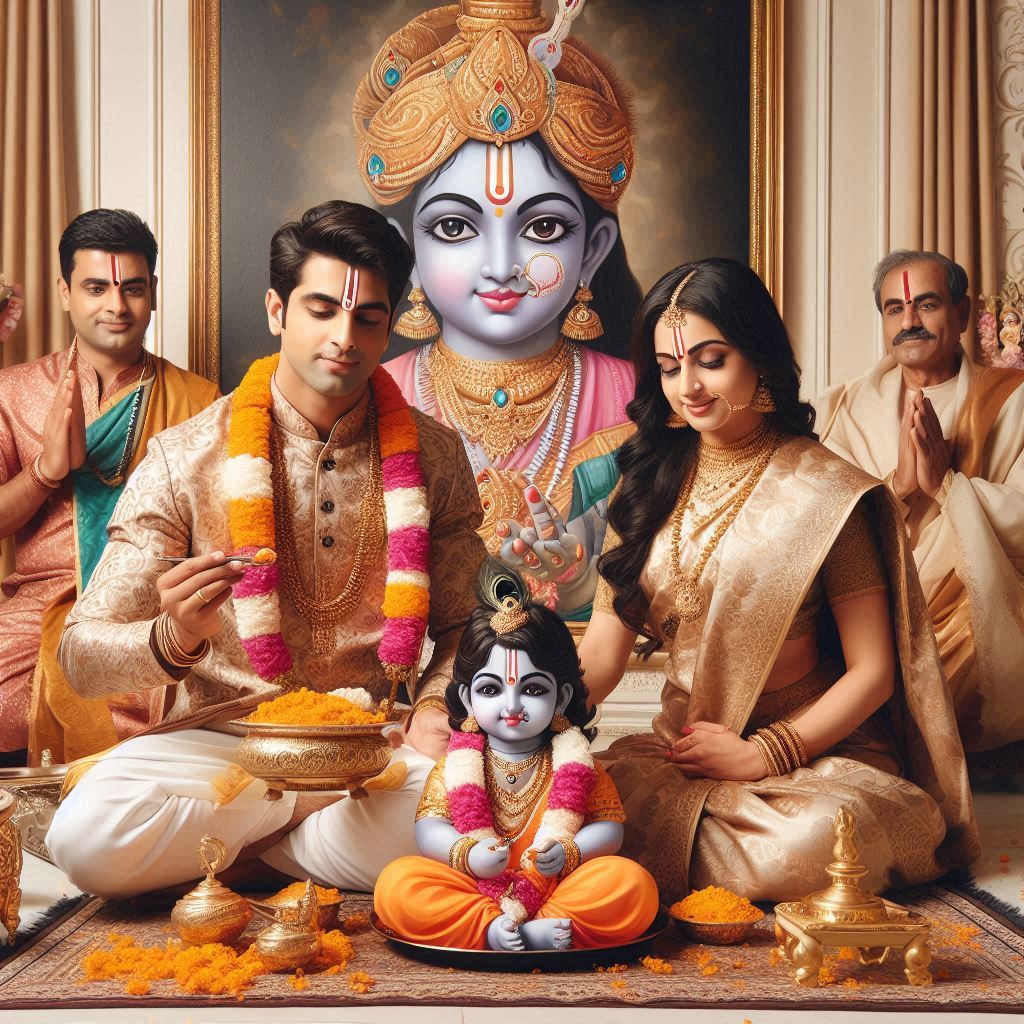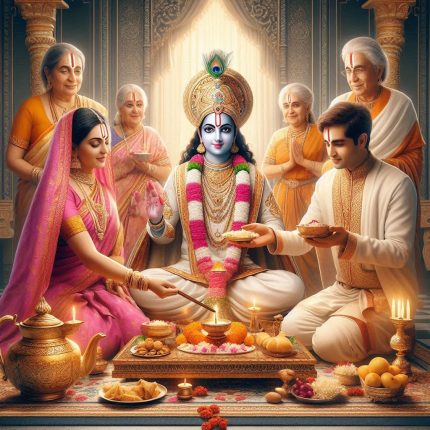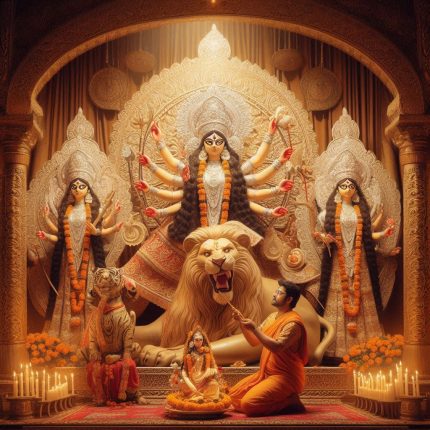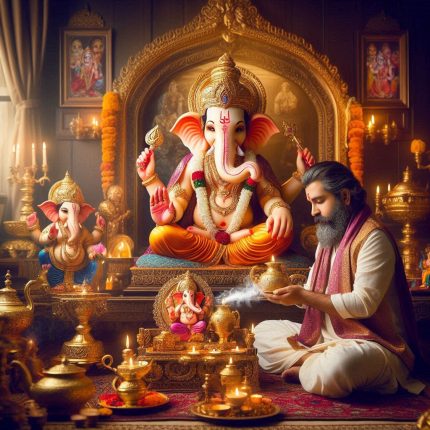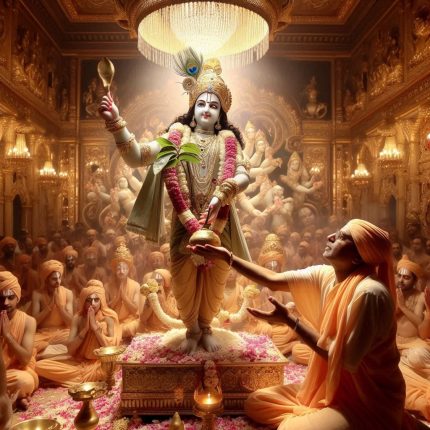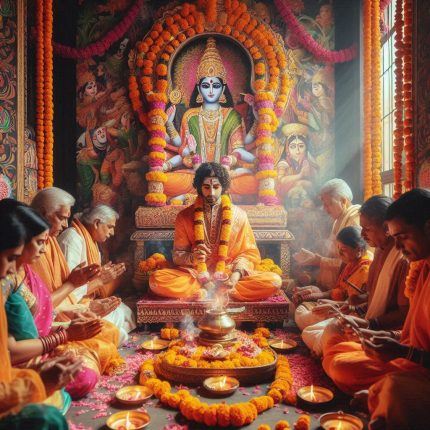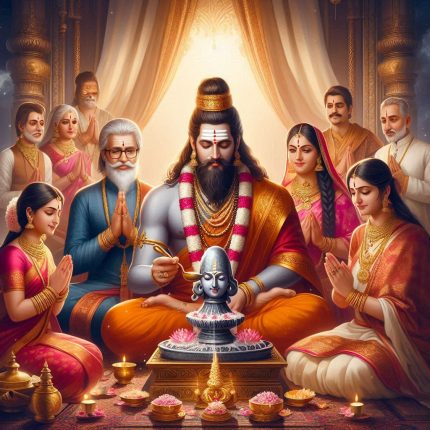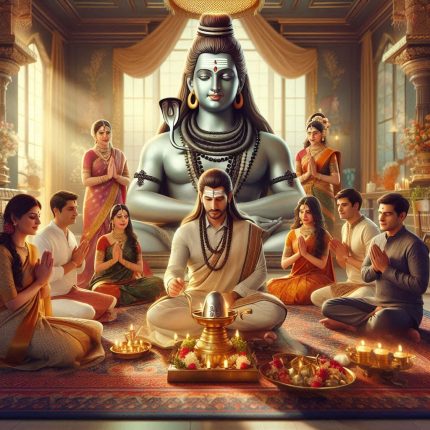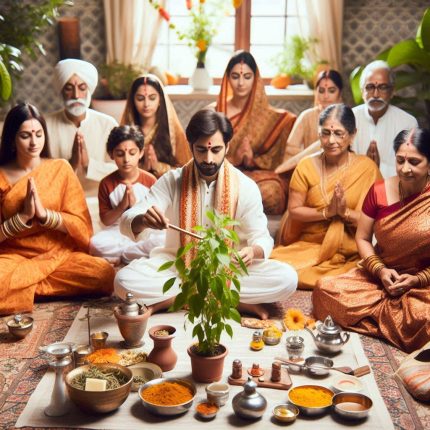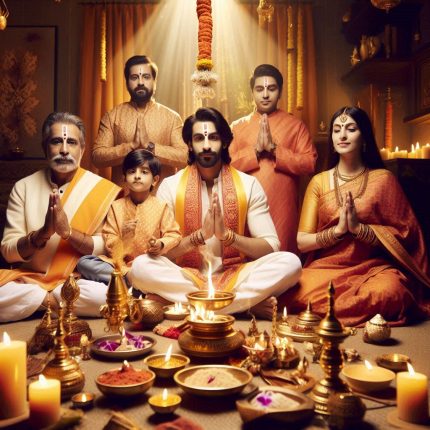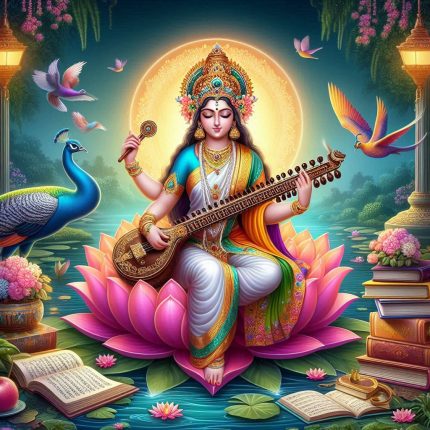Janmashtami Puja: A Celebration of Lord Krishna’s Birth
Samagri
for Puja:
Haldi [organic] (20gm), Kumkum [organic] (20gm), Tulsi Mala (1), Diya Batti (5), Beetle Nuts (5), Desi Ghee (20ml), Honey (20ml), Jaggery (Gudh) (20gm), Akshata [Yellow rice] (20gm), Yagno-paveetha (5), Karpoora [camphor] (5Tabs), Red/White/Yellow Cloth(1 mtr), Prasad [Laung, Elaichi, Mishri] (20gm), Mouli (25mtr), Ganga Jal (15ml), Durva [fresh] (1), Agarbatti (6)/Dhoop (2), Dakshina (100INR), God Idols (pair), Sambrani (2), Sambrani Holder (1), Kalash [small copper] (1), Panchpatra [small copper] (1), Diya Holder (2), Panchamrit spoon (1), Karpoora Holder(1), includes perishables [Beetle Leaves [fresh] (9), Flowers [fresh] (incl mala), Tulsi [fresh], Mango Leaves [fresh] (7)]
Small Havan:
Cow Dung Cake (2), Mango Wood (250gm), HavanSamagri [20+ Grganic Herbs] (100gm), Ghee (20ml)
Yajman to provide:
Curd (100gm), Milk (100ml), Mithai (250gm), Fruits [5types], Coconut (1), HavanKund, SuchiSarva (Havan Spoon) (1), Kalash [big] (1), Bowl [preferably copper/silver] (1), Spoon [preferably copper/silver] (1), Utensils [2 big Plates (for Aarti/Samagri), disposable Plates, Bowls & Spoons], First solid food (preferably Kheer or Payasam)
Importance and Significance of Janmashtami Puja
Janmashtami holds profound significance as it symbolizes the arrival of Lord Krishna to rid the world of evil and restore dharma (righteousness). The puja not only celebrates the birth of Krishna but also serves as a reminder of his teachings and principles, encouraging devotees to embrace love, compassion, and moral values in their lives. It fosters a sense of community and devotion, bringing families together in joyous celebration.
Benefits of Janmashtami Puja
- Spiritual Connection: Engaging in the puja enhances devotees’ connection with Lord Krishna, fostering love and devotion.
- Cleansing of Negativity: The rituals help purify the mind and spirit, allowing individuals to release negativity and embrace positivity.
- Community Bonding: Janmashtami celebrations encourage communal participation, fostering unity and togetherness among families and friends.
- Cultural Heritage: The festival celebrates rich traditions, reinforcing cultural identity and values among generations.
Occasions to Perform Janmashtami Puja
Janmashtami Puja is primarily performed on the night of Krishna’s birth, coinciding with midnight when he is believed to have arrived in the prison cell of Mathura. The festivities often last for the entire day, with various rituals and celebrations leading up to the main puja.
Janmashtami Puja Vidhi (Procedure)
- Preparation: Clean the home and create a sacred space for the puja. Decorate the area with flowers, colorful rangoli, and lights to create a festive atmosphere.
- Setup: Place an idol or picture of Lord Krishna in a beautifully adorned cradle or swing. Prepare offerings of sweets, fruits, and traditional dishes like butter and milk, reflecting Krishna’s love for these foods.
- Invocation: Begin the puja by invoking Lord Ganesha to remove obstacles, followed by prayers to Lord Krishna, expressing gratitude for his divine presence.
- Offering Prayers: Recite mantras and bhajans (devotional songs) dedicated to Krishna, seeking his blessings for peace, prosperity, and happiness.
- Puja Rituals: Perform aarti, offer flowers, and light diyas (lamps) to honour the deity. This can be accompanied by singing devotional songs or reciting passages from the Bhagavad Gita.
- Celebration of Birth: At midnight, commemorate Krishna’s birth with special rituals, such as placing the idol in a cradle and singing lullabies.
- Distribution of Prasad: Share the offerings (prasad) with family and friends, symbolizing the blessings of Lord Krishna and fostering community spirit.
Janmashtami Shubh Muhurat
The Shubh Muhurat for Janmashtami Puja is typically identified based on astrological recommendations, particularly focusing on the auspicious time of midnight when Krishna is believed to have been born.
By celebrating Janmashtami Puja, devotees honour the divine qualities of Lord Krishna, seeking to embody his teachings in their lives. This festival is a vibrant celebration of love, devotion, and the enduring spirit of joy that Krishna represents, fostering a deep sense of connection to the divine.

